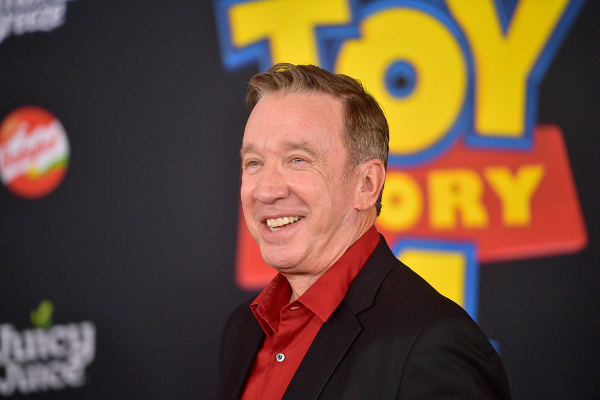Happily never after: Clinging to faith after purity culture (part 2)

During a deeper study about the biblical story of King Saul, I sensed God closing in the final gaps of my own doubt about His identity.
Usually, when we talk about the anointing of Old Testament kings, we think of David. But the story of Saul becoming king has noticeably more detail and length than David’s.
Five full chapters in, 1 Samuel outline Israel’s rebellious request for a human king, rejecting the governance by God in a theocracy. They wanted to be just like everyone else, not special, not unique. God told them it was a bad idea but acquiesced to their request and designated a young man named Saul as the best candidate.
I’d forgotten just how many dramatic signs and symbols God provided, showing Saul was to be king. It was unmistakable. Unforgettable. Undeniable. No one could argue that anyone else was the chosen one. There were too many miraculous prophecies and signs pointing to his chosenness. If any man ever had a list of reasons to humbly believe God had selected him for a special calling — it was the young King Saul.
READ: Happily never after: Clinging to faith after purity culture (part 1)
So how exactly did Saul go from celebrated inaugural king of God’s people to ending his life story with so much jealousy, arrogance, spiritualism and corruption that the only solution was for him to be replaced?
Selfish choices can destroy divine plans
It wasn’t that God made a mistake by anointing Saul.
It wasn’t that God should have chosen someone else, or that He failed to guide Saul effectively.
It wasn’t that Saul should have been forced to be a good king and remain humble, like he was when Samuel found and anointed him (1 Samuel 9:21).
Saul was free to make whatever choices he wanted. And over time, Saul’s choices proved increasingly toxic. Over and over again, he chose himself and his own aggrandizement instead of obedience to his calling:
- He indulged jealousy and hatred toward David’s battle prowess.
- He fixated on destroying personal enemies instead of leading God’s people wisely.
- He let pride and entitlement rule his decisions.
It wasn’t that God chose Saul mistakenly, it’s that Saul lost all respect for having been chosen.
He decided he knew better than God, that his own wisdom was more reliable. Like when he decided sparing the richest Amalekite spoils for the purpose of sacrifice was a better idea than God’s direct instructions to destroy everything in sight (1 Samuel 15).
When Saul realized his poor decisions had created exposure and vulnerability — he cemented his rejection of God’s guidance in his leadership. Instead of turning to prayer with humility and asking God’s wisdom as Solomon did generations later, he sought answers from the occult (1 Samuel 28).
In essence, if God allowed Saul to continue in kingship without experiencing the full weight of consequences for his betrayal, corruption and entitlement, God would have been divinely enabling Saul's evil actions. God gave years of repeated opportunities for Saul to change trajectory, until his egotistical self-absorption was so complete that the only option was to be deposed from kingship by death.
Evil must be met with consequences
Saul’s original state of divine chosenness never eliminated his ongoing freedom of choice. Just like every other man and woman, Saul's human choices ultimately received consequences.
It’s the same when a marriage goes sideways due to abuse, addiction, or other toxic behaviors.
God may give signs and show landmarks to guide our decisions, but He does not force anyone to continue living in kindness, honesty, and humility for a lifetime. We are each still free to choose self, addiction, pride, unbelief, shame, indulgence, and exploitation.
It took years of healing for this cognitive knowledge to shift from my head down into my heart. Years to embrace the emotional healing of accepting that my survival through an abusive marriage, that my experience of being abandoned in exchange for sexual addiction and betrayal beyond the sacred vows of marriage — was never God’s desire or intention. Years to release the pent-up anguish against God for not forcing my story to turn out “happily ever after.”
But during those years, I realized that the promise of God leading two people together is not a guarantee of any fairy tale ending. There’s no guarantee of happy endings when two people choose each other without God, either.
Regardless of how a relationship begins, we each write the middle and the ending through the little choices we make every single day. We write the happy ever (or never) after through the small, seemingly insignificant decisions that weave our shared fabric of truth or deception, trust or betrayal.
God doesn’t push ideal choices on us. He doesn’t force good decisions.
But He does make them available.
He hopes we will take these available choices and allow Him to weave something beautiful. Too often one partner or the other (and sometimes even both) gravitate toward the option of the fastest thrill or greatest immediate gratification.
Happily ever after is a choice
Some would argue that “happily ever after” is a fairy tale phenomenon. Something unattainable in real life; a dream existing only in made-up stories, the fluff of childhood naiveté.
I disagree.
Looking back on the reality that was, the life that could have been, the beautiful life ahead of me when I innocently said “I do” at the tender age of 21 — I no longer doubt God’s character of love toward me.
Now, I simply believe “happily ever after” is a choice:
- A choice for two people to lean into each other as both lean toward God.
- A choice to take notice of the small decisions every day that either build foundations of trust or walls of self-protection.
- A choice lays the bedrock of all choices to follow — setting oneself aside in the service of those we love.
Every day offers a fresh set of choices waiting to be made. Fairy tales may not exist, but you can still choose happily ever after. Or not …
All the choices are yours to make.
Sarah McDugal is an author, speaker, abuse recovery coach, and co-founder of Wilderness to WILD & the TraumaMAMAs mobile app. She creates courses, community, and coaching for women recovering from deceptive sexual trauma, coercive control, and intimate terrorism.





















